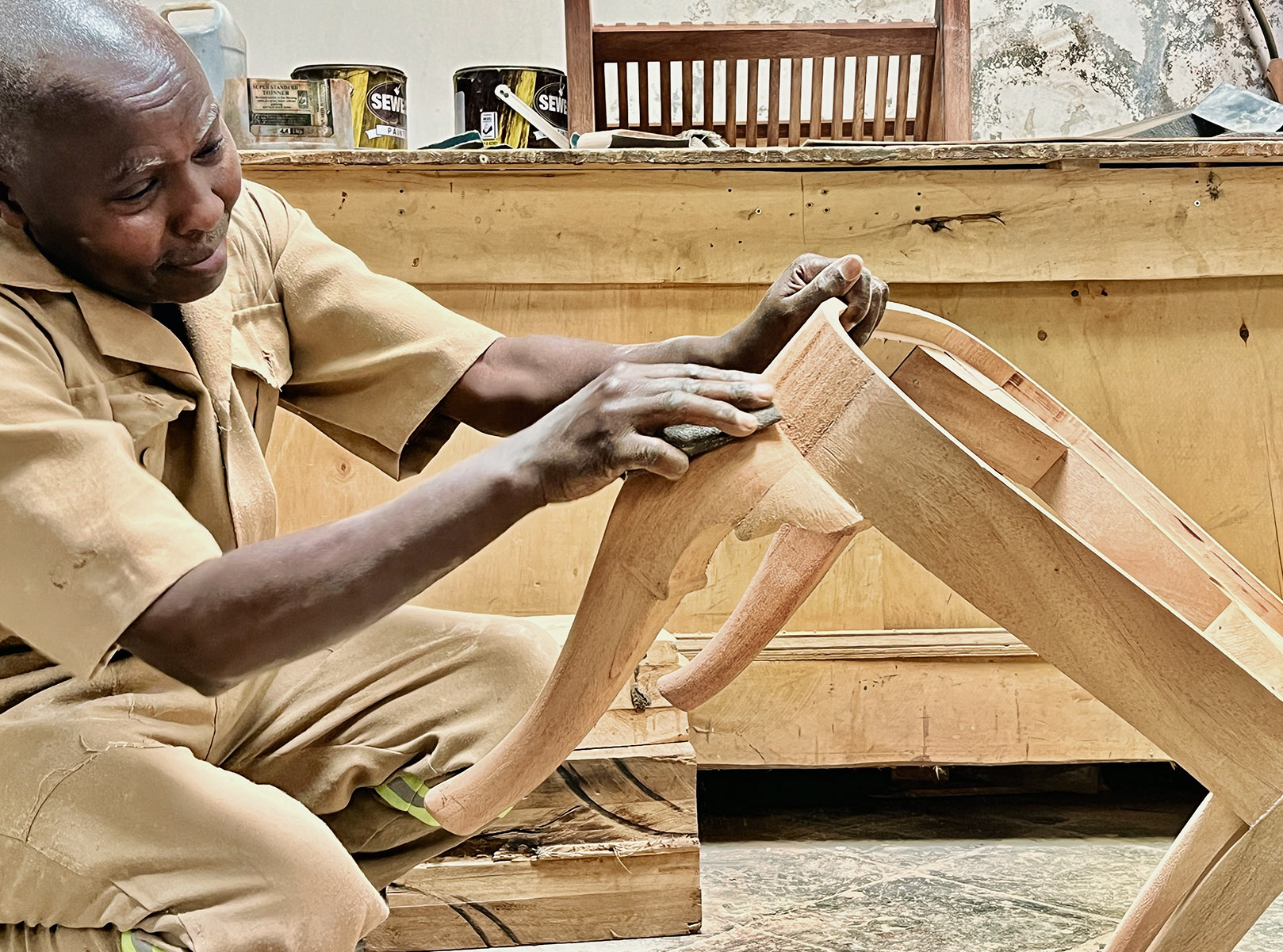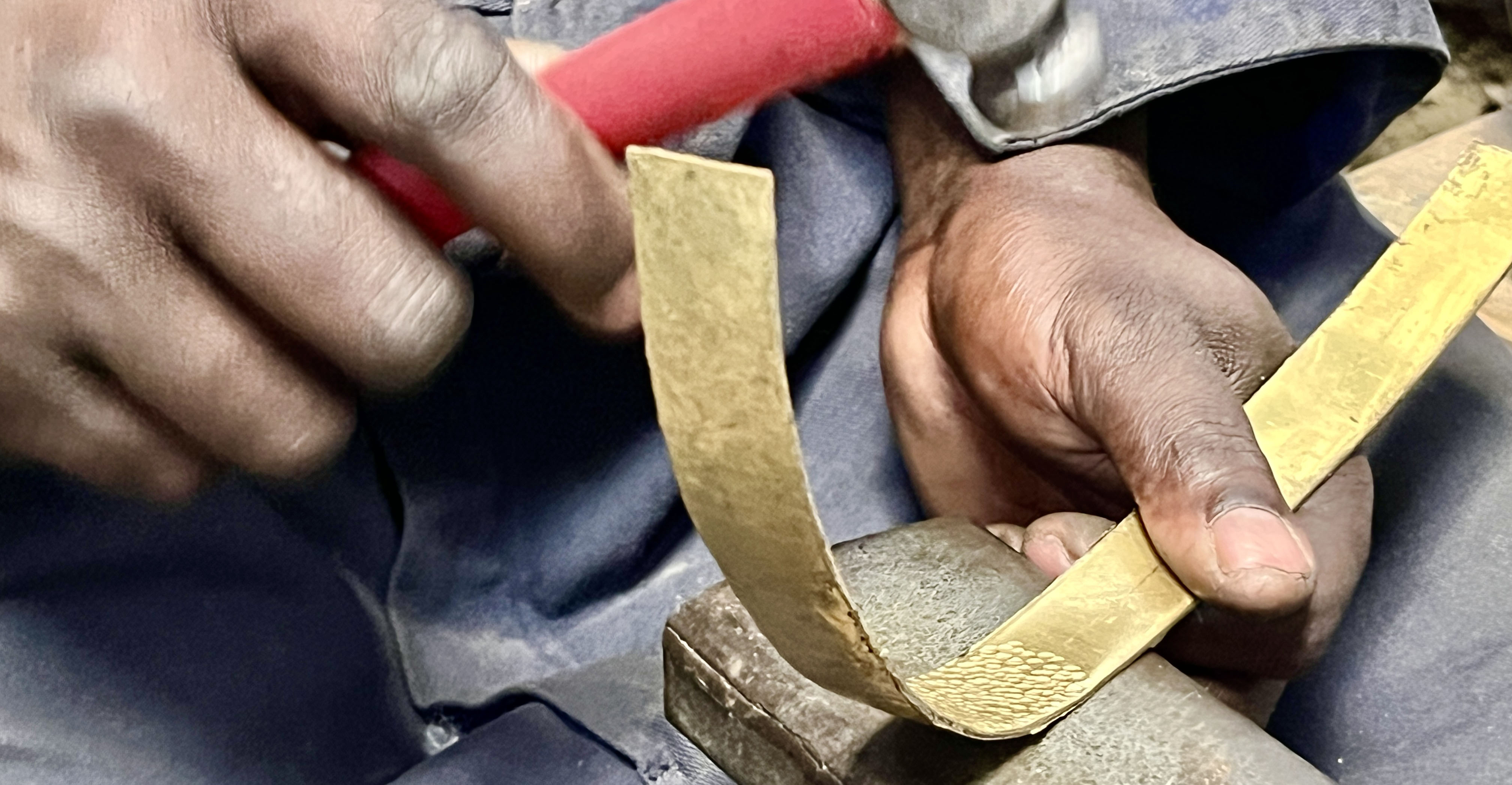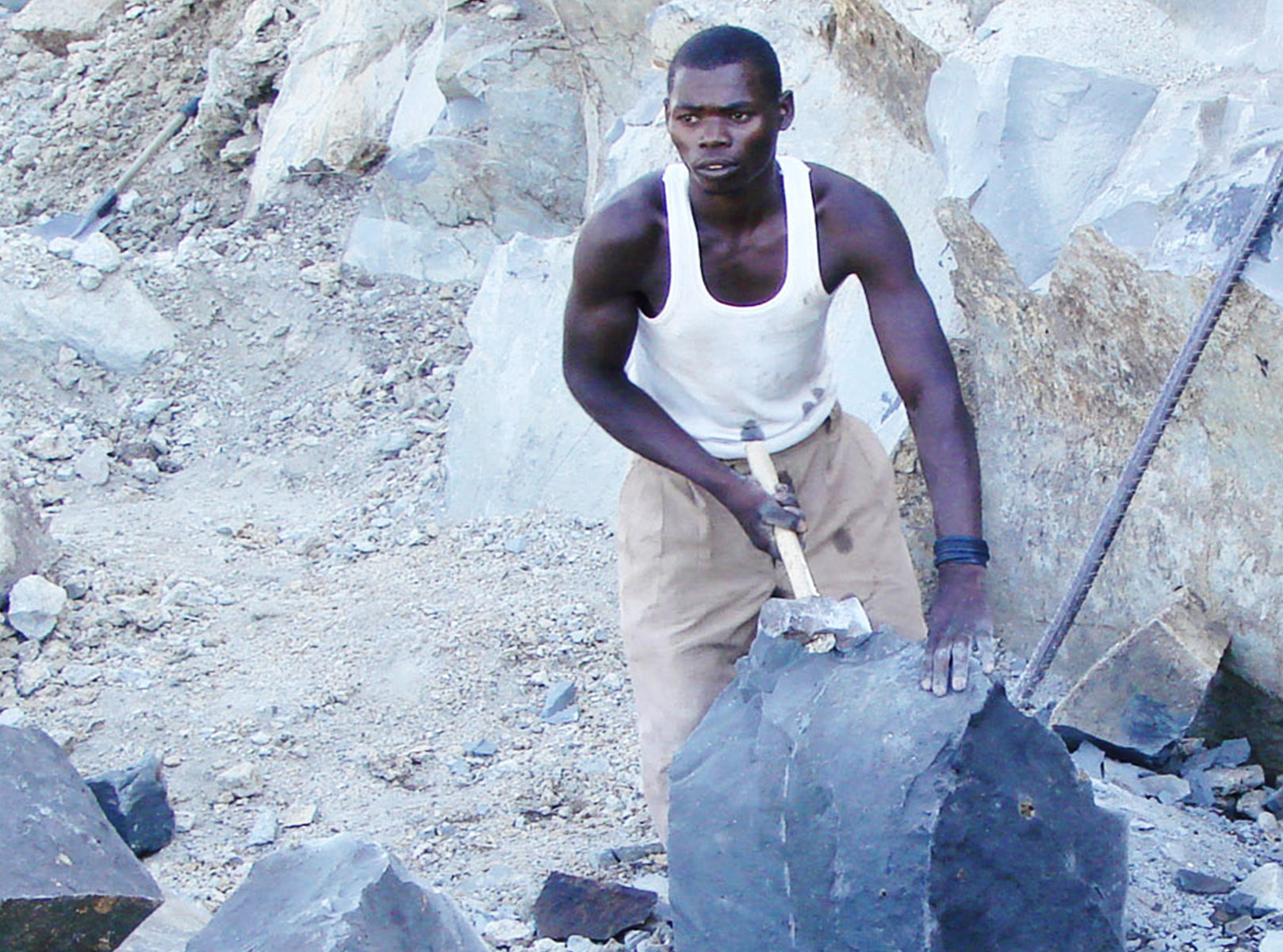We will make decisions for each project to increase local labour hours to the extent possible - quantified to better understand our impact. This means designing and building projects which use local materials, assembled by local labour and in some cases in a way in which mechanisation is specifically avoided. The benefit is to a local community or pool of labour that would otherwise have missed these opportunities.
In seeking to encourage local labour we can also try to preserve and enhance vital construction and craft skills such as the locally relevant trades of masonry, joinery and terrazzo. These trades were prevalent in prior years both in Nairobi and along the East African littoral but have diminished in light of more contemporary, mechanised and cost focused building methodologies.



Over the years we have seen the potential economic impact to the local economy of buying and utilising local materiality in our projects. In our current work more than 95% of the materials by volume incorporated into our projects will have been procured from local or regional sources including stone, concrete, steel, and timber.
Looking forward, we will only use materials or fittings imported from leading international sources where we cannot find a suitable locally manufactured or available solution.

